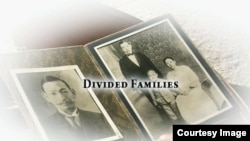A group of Korean Americans who were separated from their families during the Korean War are calling for reunions between family members in the United States and North Korea.
Divided Families is a national coalition of representatives from 13 states working on the issue of Korean Americans divided from family members since the end of the Korean War. In a bid to raise awareness of the issue in Congress Monday, they continued their campaign by screening of a 50-minute documentary at the Congressional Auditorium in Washington.
The documentary, featuring stories of five Korean American families separated by the war, was produced by second generation Korean Americans whose families have been apart since the 1950s.
“The way we see it, [people] can easily brush off the issue of separated families, but if you put human face to the stories and tell their opinions, that can play an integral role in bringing people’s attention and bringing about a policy change,” said Chahee Lee, the founder of Divided Families in USA, speaking of the film.
Lee, who was separated from her father and brother when she was five, admitted that persuading the governments of two countries who have no diplomatic relations to allow such reunions would be a difficult task. But the former librarian from Chicago says she will continue to work for the reunions.
Lee and her group have sought official U.S. support for more than a decade and have been able to draw attention from several lawmakers. Senator Mark Kirk, a Republican from Illinois, is one of the key Congressional advocates of their cause.
“Let me just briefly say why this is so important to me. Numbers speak for themselves,” said Kirk at the screening.
Kirk added that only several hundred out of 100,000 separated Korean Americans have been able to meet their family members in North Korea during private visits to the isolated state.
Kirk is pushing for a bipartisan resolution that supports reunions of divided families.
Representative Charles Rangel, an 84-year-old lawmaker from New York and a Korean War veteran, is another powerful ally who hosted the screening.
“We cannot feel with same emotional strength that you feel for this reunification, but we have felt it in our country,” he said in reference to the U.S. American Civil War.
Thousands of North and South Koreans have held family reunions in the past three decades. But most Korean Americans have been excluded from these events.
Jee Abbey Lee contributed to this report, which was produced in collaboration with the VOA Korean service.




